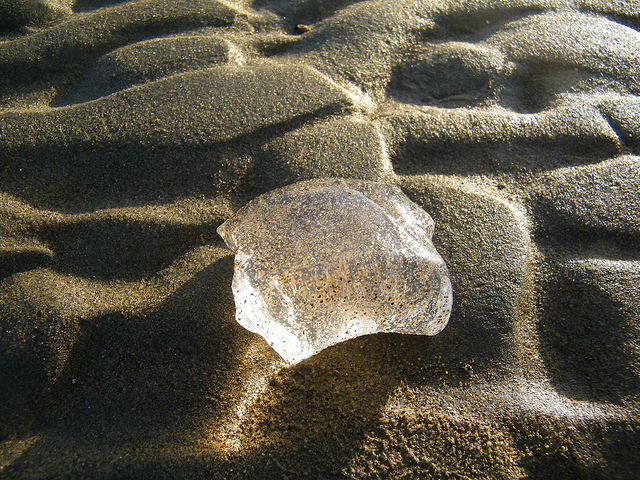For Daneen Bergland
How is your heart? How is your hallux?
How is your inner sea horse?
How is your breathing? How is your ending?
What dust has your faded green rag picked up?
Everything’s fine here. Like, hi. Like, hello.
Like, hey, we need to get together.
So how grows the chervil? How are the snails
in the clearing where you once grew potatoes?
How is your mother? How is your father?
How much longer can your hangnail hold on?
How is your daughter, who combs the curls
of pink little ponies and stones them to death?
How is the fruit rotting into wine in your basement?
How much meat have you managed to can?
How is the spiders’ meditation retreat on the shelf
reserved for authors whose last names start with “Q”?
Do they chant, “Shanti, shanti, shanti, aum”
as the universal vacuum breathes them in?
Hi! Hi! Hello! I send you my love from paradise.
The water’s fine. Why don’t you join me?
I drowned a man in me, and today the tides
are unanimous in their stinging debris: the broken glass,
the gassy blobs of man o’ wars scribbling their blue
signatures, the bees weighed down with salty wings.
I held him down, and he mouthed fine, fine.
He’s grateful to float face down in the left atrium
of my spacious heart, beating for you, like a flipper
slapping at the water’s surface: Life is so, so, so, so
beautiful: the whales’ flocculent dumps float like
clouds reflecting the clouds until they dissipate.
Photo: “Jelly Wasteland” by Michael Zimmer; licensed under CC BY 2.0
Click here to read Janine Oshiro on the origin of the poem.
Janine Oshiro:
I was feeling very far away from poetry when I worked on this poem last fall and into the spring semester. I was prioritizing teaching over writing and feeling overwhelmed by work. In November my friend Noa posted an article on Facebook from On Being called “The Disease of Being Busy” by Omid Safi, Director of Duke University’s Islamic Studies Center. He writes, “In many Muslim cultures, when you want to ask [people] how they’re doing, you ask: in Arabic, Kayf haal-ik? or, in Persian, Haal-e shomaa chetoreh? How is your haal?
What is this haal that you inquire about? It is the transient state of one’s heart. In reality, we ask, ‘How is your heart doing at this very moment, at this breath?’ When I ask, ‘How are you?’ that is really what I want to know.”His words spoke directly to me; I wanted to stop being too busy for writing poems and asking after my own heart and the hearts of others. I shared the article on my wall and wrote, “How is your heart? How is your littlest toe? How is your inner panda bear?” I toyed around with that little piece of language for a while.
I decided not to do any work on the weekends. I spent time reading about whale poop and plankton and carbon. Poop is a joyful word, and way more fun than feces. I wanted to make whale poop into something beautiful in a poem. This desire bumped into that little piece of language I had originally posted on Facebook, but it still wasn’t close to being the poem that is published here. The first drafts of this poem felt more like clever word play. The poem didn’t satisfy me. I felt like I was playing with language but avoiding saying anything about “the transient state of [my] heart.”
I thought of my friend and fellow poet Daneen Bergland and started writing to her about our lives, hers in Portland and mine in Hawaiʻi. My desire to connect with her prompted me to say something that feels necessary and true to me. I don’t know that I would have been able to say what I needed to say without her. I needed to make a confession, but I couldn’t do it alone. She kept me honest.
Daneen and I share a love of Elizabeth Bishop, so I left in what was at first a sort of happy accident “so so so so” because it reminded me of “The Filling Station” and that last line “Somebody loves us all.” Yes, poop and drowned men and all.
Janine Oshiro is the author of Pier, winner of the 2010 Kundiman Poetry Prize, published by Alice James Books. She has been awarded the 2013 Asian American Literary Award for Poetry and the 2011 Elliot Cades Award for Literature in Hawaiʻi. A graduate of Whitworth University, Portland State University, and the University of Iowa Writers’ Workshop, she currently lives in Hawaiʻi.
Latest posts by Janine Oshiro
(see all)


